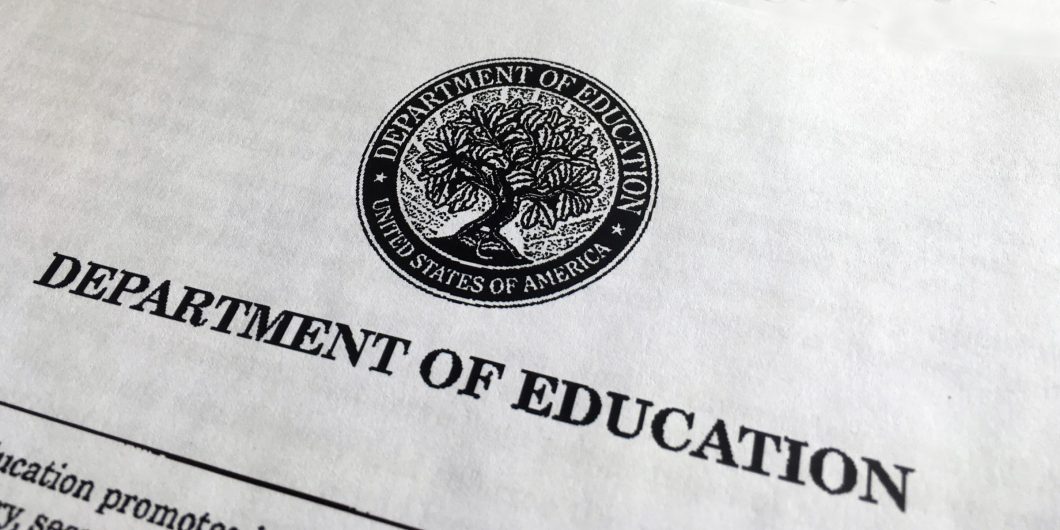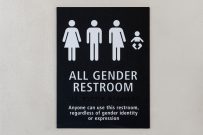Financial incentives need to promote responsibility, and the public interest, not the opposite.
Title IX for Men
Title IX’s 35 words are deceptively straightforward, but they have proved frequently controversial. They state, “No person in the United States shall, based on sex, be excluded from participation in, be denied the benefits of, or be subjected to discrimination under any education program or activity receiving federal financial assistance.” Passed in 1972, the Act was renamed in 2002 the Patsy T. Mink Equal Opportunity in Education Act, after the Congresswoman who authored it in the House of Representatives.
Since money is fungible, the Act has been interpreted to mean that if any part of any institution receives federal funds, then none of its institutional programs can discriminate “based on sex.” Institutions have to regularly certify to the U.S. Department of Education that they are actively enforcing Title IX as a condition of receiving federal funds, and the law is enforced by the department’s Office for Civil Rights (OCR).
Most of the public attention about Title IX enforcement has revolved around its effects on athletics, where institutional policies had to be rebalanced to create new opportunities for females. Attention also focuses on its application to campus adjudicatory policies for alleged student sexual offenses, which many argued had failed to provide adequate due process for the accused (usually men).
Now there is a wholly unanticipated enforcement of Title IX—this time benefiting men. The long-standing narrative in higher education has been that women are a marginalized group on campuses. Investing in special programs and administrative support for women, not available to men, were needed to realize female potentials. Sometimes this narrative was based on accurate, but outdated statistics. Other times, it was based on selective data, showing female underrepresentation in some disciplines, while ignoring their overrepresentation in other fields. Another motivator was the strength of campus feminist movements for which there were rarely male counterparts.
Consequently, over the last four decades, an impressive panoply of higher education programs was designed and funded for women on both public and private campuses. To raise questions about their exclusive nature was to immerse one’s body in a hornet’s nest, an activity enjoyed neither by administrators nor legislators. Still, how did such programs survive Title IX’s requirement that “No person … shall, based on sex, be excluded from participation in, be denied the benefits of, or be subjected to discrimination under any education program?”
The answer to that question was that the higher-education, women-only programs were largely ignored until they were challenged from very unusual sources. Mark J. Perry is a tenured full professor of Economics and Finance at the University of Michigan-Flint. His dissertation was on “Macroeconomic Applications of Autoregressive Conditional Heteroskedastic (ARCH) Models” which does not reveal a strong interest in civil rights. Perry, however, is also a Resident Scholar at The American Enterprise Institute (AEI) since 2010 and a prolific blogger. His efforts to challenge single-sex campus programs were summarized in his November 6, 2020 AEI blog. He had filed 244 such complaints that had to that date resulted in 30 successful resolutions and he expected another 100 complaints to be successfully resolved by discontinuing the single-sex program or opening it to both males and females.
The empirical foundation for Perry’s questioning of the feminist narrative and his later actions in filing complaints with OCR was based on some federal statistics which he outlined on his October 15, 2020 AEI blog. For example, for every 100 women enrolled in US colleges at any level, there were 75 men enrolled. In graduate schools, there were 100 women for every 71 men. For every 100 women receiving master’s degrees, there were 65 men; at the Ph.D. level, the ratio was 100 women to 85 men.
If the policy of quiet OCR settlements is abandoned by the Biden Administration, it seems likely that these Title IX challenges will go on in the form of highly publicized, expensive litigation.
Perry is also interested in larger societal measures where men are disadvantaged or perform more poorly. For every 100 women with an advanced degree who were not in the labor force, there were 233 men. Or more dismally, for every 100 women who were homeless and unsheltered, there were 232 men. Disparities for illicit drugs and alcohol dependencies are 100 women to 180 men. Finally, for every 100 females in state or federal prisons there were 1,314 men. The sad state of males is also reflected in American families. About 25 percent of all children grow up in fatherless families; for African-Americans, it is 65 percent. The pandemic seems to have made the educational imbalance between females and males worse. Thus any objective proponent of single-sex programs in higher education would have to conclude they should be primarily for men, but such almost never exist.
Also in his November 6 blog, Perry wrote about the outcome of his May 2019 complaints against Duke University. With its right hand, Duke advertised its formal policy that “in accordance with federal law,” the university does not discriminate against anyone in the protected categories including “sex, sexual orientation, gender expression, and gender identity.” But with its left hand, Duke sponsored A Girls Exploring Science and Technology event, a Girls Stem Day @Duke, and Duke’s FEMMES (Females Excelling, More in Math, Engineering and Science) that excluded males. Duke has now signed a Voluntary Resolution Agreement (VRA) before the completion of the OCR investigation. In the VRA, Duke has agreed either to discontinue the programs in question or make them coeducational.
On December 8, 2020, in his current private capacity, Adam Kissel, formerly Deputy Assistant Secretary for Higher Education Programs in the U.S. Department of Education, announced he has filed recent complaints about sex-exclusive programs at the University of North Carolina Chapel Hill, the University of North Carolina at Charlotte, North Carolina State University (NCSU), and Wake Forest University. One element of sex-focused programs is that they often say they are open to every gender, but only if participants agree to certain ideological viewpoints. For example, NCSU’s October 28, 2020 event “Virtual Women of Color Retreat” was open to people who “identify with a statement” that “Women of color (transgender women, non-binary people, two-spirited and other minoritized genders) have experienced gender-based marginalization while also experiencing the current and historical effects of racial and ethnic-based marginalization.” Conditioning participation in a public university event on acceptance of a particular historical or political viewpoint may raise First Amendment as well as Title IX concerns.
Perry, Kissel, and probably other unknown persons have filed complaints as individuals and received responses from OCR, but a 501(c)3 organization called SAVE, founded in 2008, has also been active. In addition to its focus on Title IX disciplinary procedures, SAVE has filed complaints with OCR and with campuses directly about sex-exclusive higher education programs. Its website contains a useful list of news stories about such actions and their outcomes. For example, women-only scholarships have been eliminated at Illinois State University, Michigan State University, Ohio State University, the University of Georgia, and many others. SAVE has also published a list of OCR resolved cases since 2013, involving 24 public and private institutions.
The complaint process is not complicated. A signed or anonymous complaint can be sent to a regional OCR office listing the questionable programs. OCR will respond about whether the allegation is timely and whether OCR has jurisdiction and will open an investigation. Also included is a stern admonition warning universities not to retaliate against the complainant. On January 14, 2021, OCR issued a Questions and Answers document summarizing its policies on such programs.
Given existing OCR decisions terminating or altering sex-exclusive programs, it is unlikely this complaint process will stop until most such programs are changed or exonerated. Perhaps in response to this trend, the National Women’s Law Center has just published a report titled “Making the Case: Gender Conscious Programs in Higher Education.”
An obvious question is what kind of Title IX enforcement activity will continue in the Biden Administration. Altering the language of Title IX is politically a nonstarter, though Biden pledged in his campaign to overturn the Title IX adjudication procedures issued in regulatory form during the Trump Administration. New political appointees at OCR will now supervise the response to sex-exclusive program complaints. Regional attorneys, though, have civil service status and many of them have already established precedents about how to rule on these complaints. Resources for investigations can be redirected and determinations can be slow-walked, however, even if precedents are clear.
While on the surface some higher education Biden allies might cheer enforcement reduction, it may not be in their long–term interest to do so. Currently, these investigations are leading to determination letters in which campuses do not admit to any wrongdoing or receive any of the sanctions that other violations of civil rights can create. Campuses simply agree to cease sex-exclusive programs. Sometimes the changes may involve dropping a program altogether. Sometimes there are merely linguistic changes masking the old single-sex focused intent. If, however, the policy of quiet OCR settlements is abandoned by the Biden Administration, it seems likely that Title IX challenges to women-only programs will go on in the form of highly publicized litigation where major financial penalties can be imposed on behalf of the class of excluded men. A much better solution is for campuses to initiate a review of their programs and policies to open up those that are educationally successful to everyone, regardless of sex, on the basis of individual talent or need.


